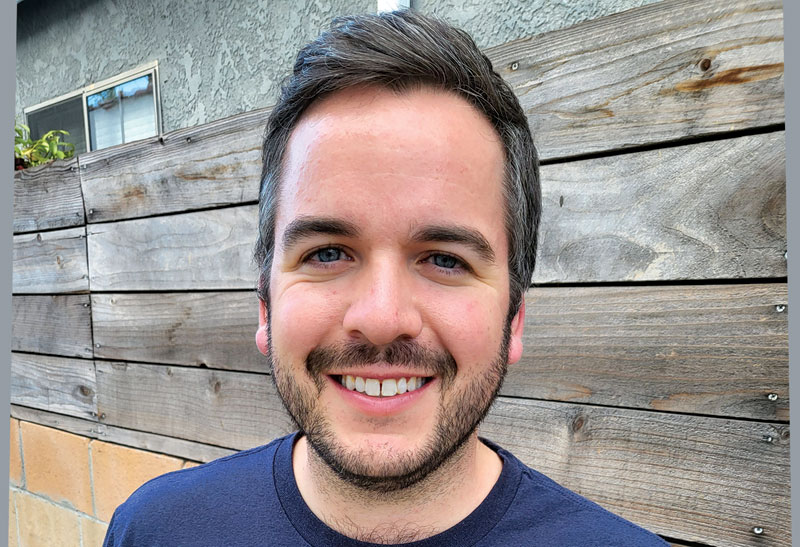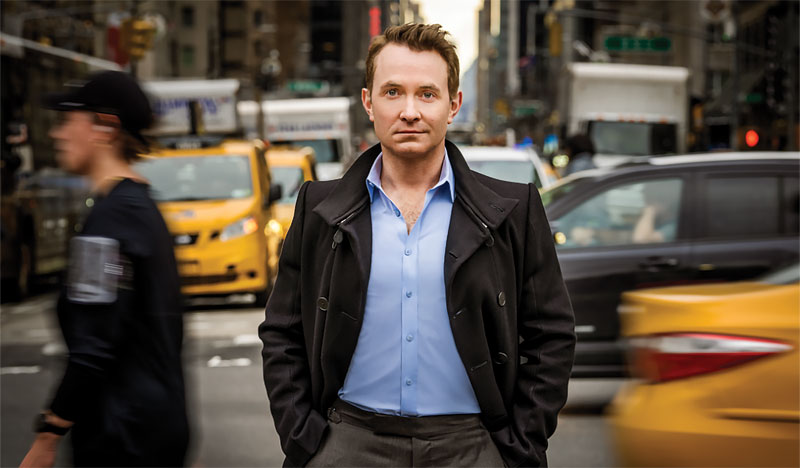“Match Point” marks a notable departure for Woody Allen, and not just because its story is set and was shot in England. Reminiscent in theme of “Crimes and Misdemeanors,” though without the humor, there’s a new tone to this film. Enough so that anybody entering the theater not knowing who made this picture would be hard pressed to guess it was Allen.
Aware of his limitations as a professional tennis player, Chris Wilton (Jonathan Rhys Meyers) abandons the competition circuit to teach the game at a posh British country club, the kind his family would never be invited to join. Perhaps because of his appetite for the finer things in life, Chris has always felt like an outsider in class-conscious England. He has worked hard to eliminate his Irish accent and has educated himself in arts and literature, all in an attempt to disguise his nonaristocratic roots.
A chance friendship with one of his pupils, Tom Hewett (Matthew Goode), provides Chris entry into the upper echelons he so covets, especially when Tom’s sister Chloe (Emily Mortimer) develops a romantic interest in him. Chris likes her well enough, but his real attention is focused on Nola (Scarlett Johansson), the seductive young American to whom Tom is engaged.
Like Chris, Nola comes from a humble background and aspires to better things. Marrying well is part of that plan. Realizing he has no chance with Nola, Chris marries Chloe and settles into a privileged, if passionless, life.
All remains fine until Chris bumps into Nola a year later. Abandoned by Tom shortly after Chris and Chloe’s wedding, Nola is just as alluring as Chris remembered. The two begin an affair, attraction turning into a kind of obsession for Chris. It’s only when Nola ups the ante, demanding that Chris leave Chloe, that Chris realizes his very comfortable way of life is being threatened.
As in “Crimes and Misdemeanors,” the protagonist must make a moral choice: abandon his comfortable lifestyle for sexual passion or break up with his mistress. But as with the Anjelica Huston character in Allen’s earlier film, Nola won’t let him just walk away, and Chris has to decide how far he is willing to go to rid himself of the suddenly inconvenient Nola.
“Match Point” stands out as one of Allen’s best films. It reflects issues common to all of Allen’s work — morality, guilt, conscience and God (Jewish concerns, to be sure), but rather than the humor-laden approach of his comedies or the gloomy, Ingmar Bergman-esque path that characterized “Interiors” and “Shadows and Fog,” Allen here adopts a more cynical, astringent tone in examining the moral bankruptcy of one individual, a path that inevitably leads to questions about the existence of God.
“Match Point” also raises a concept not found in most of the director’s work: the role that luck plays in everyday life. Characters make choices and are responsible for their actions, but if their luck holds, they don’t have to face the consequences of those actions — be it the law or a guilty conscience.
If “Match Point” is Woody Allen at his peak, the same cannot be said for “Rumor Has It,” which was directed by Rob Reiner, another filmmaker whose work frequently reflects Jewish sensibilities. An unofficial “sequel” to the 1967 film, “The Graduate,” “Rumor Has It” is set in ritzy Pasadena in 1997 (the year is an important plot point) and focuses on 30-year-old Sarah Huttinger (Jennifer Aniston).
Sarah is getting cold feet about her secret engagement to Jeff (Mark Ruffalo). Home for her younger sister’s wedding, she learns from her grandmother, Katharine (Shirley MacLaine), that Sarah’s own mother, who died when Sarah was a child, experienced similar commitment fears and ran off with another man the week before her wedding.
Piecing together other bits of information, Sarah surmises that her family was the inspiration for the novel and movie, “The Graduate” — which would make Katharine Mrs. Robinson. To confirm her suspicions, Sarah abandons her fiance and flies to San Francisco to confront the real Benjamin Braddock. Beau Burroughs (Kevin Costner) is still sexy after all these years, and Sarah seduces him, only later realizing that he might actually be her biological father.
While moviegoers may be attracted to the marquee names here — Aniston, Costner, MacLaine, Ruffalo and director Reiner — anyone who loved the original Mike Nichols film will be appalled by this “update.”
The humor is either distasteful (Sarah’s realization that she may have slept with her own father) or hopelessly lame (Jeff and Sarah attempt to have sex in the airplane bathroom, followed by a fat man accidentally wedging into the bathroom with Jeff).
The screenplay by T.M. Griffin rests on too many unconvincing plot points. And while Aniston’s forte is comedy, she is done in by the script here. Ruffalo proves impressive in the film’s later scenes — when he finally gets angry enough to leave Sarah — but otherwise is his usual, sweet milquetoast self. Acting honors go to MacLaine, who relishes her acerbic character, but she deserves a better film.
If “Rumor Has It” and Reiner’s previous film, “Alex and Emma,” are any indication, the director appears to have lost his knack for romantic comedy. But given his long list of wonderful movies — “When Harry Met Sally,” “The Sure Thing,” “Stand by Me,” “A Few Good Men” — perhaps this can be chalked off to a momentary decline.
Jean Oppenheimer writes for American Cinematographer magazine, the New York Times Syndicate and the New Times corporation, as well as serving as a film critic on KPCC’s “Film Week.”
Â





















 More news and opinions than at a Shabbat dinner, right in your inbox.
More news and opinions than at a Shabbat dinner, right in your inbox.